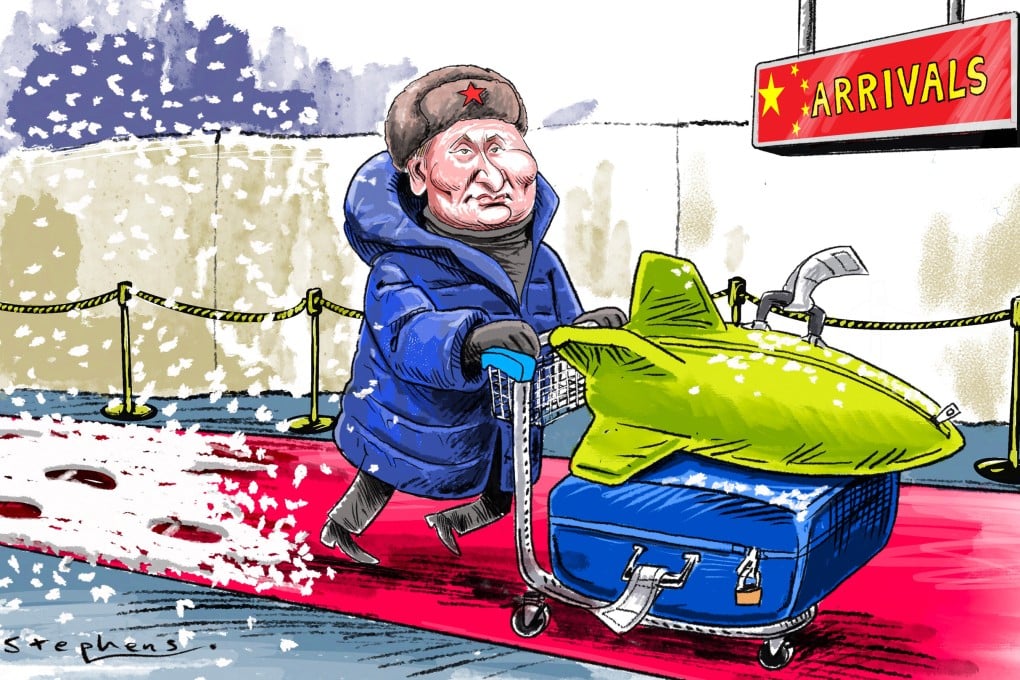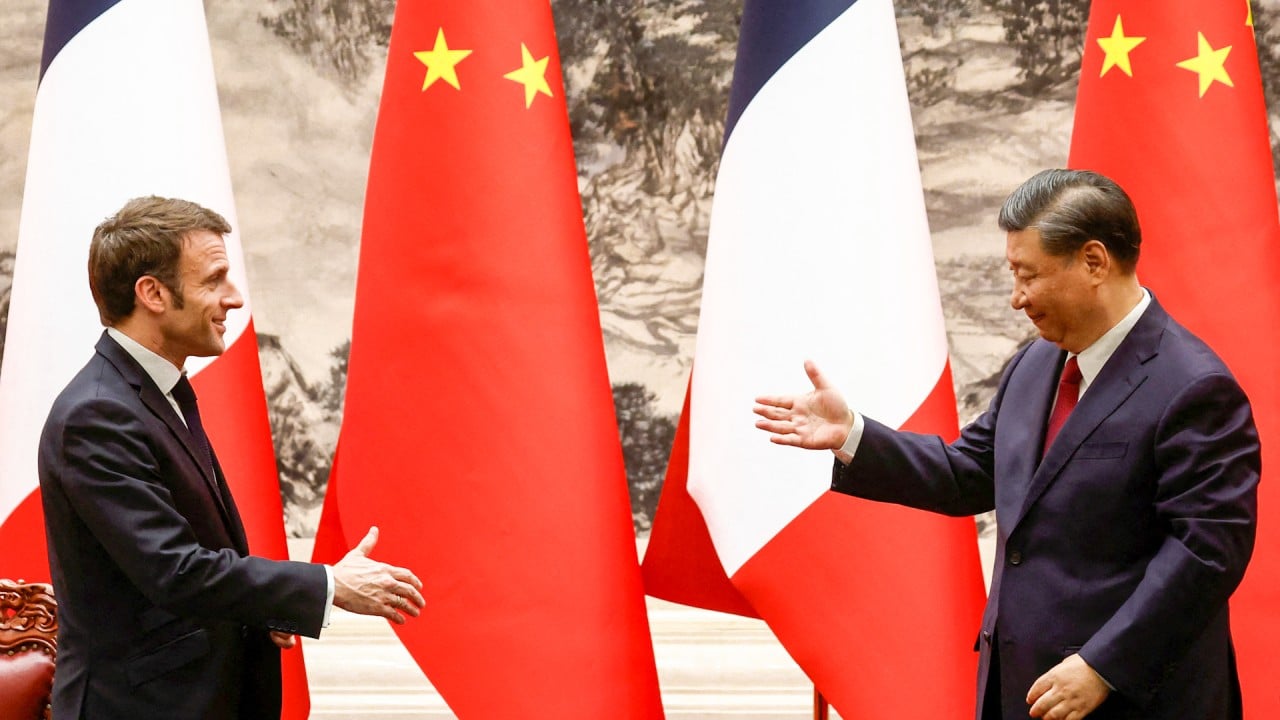Advertisement
Opinion | Putin’s visit to China brings new cold war – and nuclear threat – ever closer
- This month’s high-level diplomatic visits offer a glimpse into how world powers are repositioning themselves for the sake of national interests
- No matter how intense geopolitical competition might get, great powers must not cross red lines into nuclear confrontation – tactical or otherwise
Reading Time:4 minutes
Why you can trust SCMP
5

Major power relations have undergone a significant transformation this month. Chinese President Xi Jinping’s trip to Europe, followed by Russian President Vladimir Putin’s visit to China, may well herald the start of major geopolitical turbulence. Meanwhile, US President Joe Biden has imposed new tariffs on imports of electric vehicles and other strategic goods from China.
Whether this marks a new phase of the US-China trade war is moot. For now, the Chinese commerce ministry has noted that Washington’s decision was driven by domestic politics, adding: “China will take resolute measures to defend its rights and interests.”
These developments point to the major powers positioning themselves to protect their abiding national interests. Second-tier powers such as France and Germany in the European Union, and Japan and India in Asia, will be affected by this competition of the US with China and Russia. The pursuit of issue-based interests is likely to prevail. Regrettably, this is a case of short-term political compulsions trumping issues that may be described as the “global good”, such as equitable free trade and climate commitments.
Xi’s visit to Europe sought to both advance and protect Chinese interests against the backdrop of a deteriorating relationship between Beijing and Washington. When Xi met French President Emmanuel Macron, the objective was to jointly push for an equal and orderly multipolar world. It’s a formulation that challenges the unipolar primacy that China perceives the US to have accorded to itself since the collapse of the Soviet Union. France, despite being a Nato member, is not as closely allied to the US as the United Kingdom is, and so was an appropriate first stop for Xi’s visit.
A joint statement on the Middle East from the Chinese and French presidents highlights the fact that both countries are permanent members of the UN Security Council and “are working together to find constructive solutions, based on international law, to the challenges and threats to international security and stability”.
The subtext here is that Israel is able to act with impunity in its disproportionate use of force against Palestinian civilians only due to American support. France and China were calling this out in the statement without explicit reference to the US. This is not to suggest that there was no divergence between Macron and Xi on other issues. There was plenty when it came to trade, on which neither side made any substantive accommodation.
Advertisement
Select Voice
Choose your listening speed
Get through articles 2-3x faster
1.1x
220 WPM
Slow
Normal
Fast
1.1x

